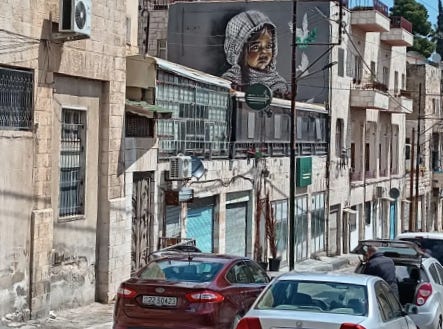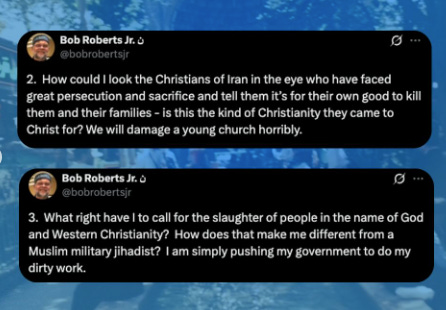On almost any day, confession can be a good place to start. I confess that in 2003 editors asked, and I agreed, to write an opinion piece supporting the invasion of Iraq. The previous year I had visited northern Iraq and in a prison interviewed al-Qaeda trainees and Ansar al-Islam militants captured by Kurdish forces. I saw documentation of Saddam Hussein’s support for terror groups. I talked to UN weapons inspectors who reported how the Iraqi government concealed the infrastructure to make weapons of mass destruction. It seemed important to protect the United States and the West from another 9/11 with a preemptive strike.
When the American bombs rained on Baghdad that March—500 a day for four days in the opening campaign—the Bush administration led us to expect a quick finish. The spine of the Saddam regime broken, we imagined an about-face in the region that would banish the terrorists and put future arsenals in better hands.
Instead we got two decades of war and insurgency that led to the deaths of at least 150,000 Iraqi civilians, killed 4,431 U.S. service members and wounded 32,000, a war that helped launch a war next door that killed half a million Syrians. I returned to Iraq over and over the next 16 years in part because I wrote that editorial, and I had so much to learn.

I followed for years a mother who gave birth to a baby in Baghdad as the shock-and-awe bombs fell, then had to flee after insurgents blew up her husband’s shop and killed his assistant. I met women who had c-sections because labor would take too long, then fled holding their newborns. I sat with families who lost children to kidnappings, to years of slavery, and to IEDs. I watched as Iraqi Christian and Yazidi communities came under devastating attacks. You can unleash a war, but you cannot guarantee where it will go.
Politicians left and right assailed President George W. Bush over the high cost of the Iraq War, and President Donald Trump promised in his January inaugural address:
“We will measure our success not only by the battles we win but also by the wars that we end — and perhaps most importantly, the wars we never get into.”
Yet lessons learned seemed to evaporate as Israel attacked Iran’s nuclear program and its leadership, and the United States followed with its own strikes. Pundits not given to praising Trump lauded Israel’s attacks and the bunker-busters dropped from Stealth bombers alongside guided missiles in the U.S. night operation on June 21. Trump’s disaffected former national security adviser John Bolton called it “precisely the right thing for America.” Biden Secretary of State Antony Blinken called the strike a mistake but said, “I very much hope it succeeded.”
Two days into a fragile ceasefire between Israel and Iran, the war has unquestionably altered daily life in the Middle East and reshaped regional relations as it raises a new specter of global war, and one with dangers the West for 80 years fought to prevent—where volatile nuclear caches are not first protected or dismantled, but targeted.
Students in Iraq were about to begin final exams when Israel launched the war with Iran on June 12. For a country coming back from its own conflict, Iraq takes exam time seriously, often shutting down internet nationwide during testing periods. Instead, classes were canceled and businesses closed, along with the region’s airspace. The long-anticipated reopening of the Mosul airport, taken over by the U.S. military during the war then destroyed by ISIS, was put on hold. Americans working in Iraq and other neighboring countries evacuated overland to Turkey for flights out.
Jordan, which sits between Israel and Iran, took hits from drone and other debris and also worked quietly to intercept Iranian missiles. For my journalist friend Heather Surls and her family, the war meant cancelling a long-anticipated working vacation to Iraq.
Heather, anticipating publication of her new book, instead “stumbled out of bed to the sound of sirens as Iran fired six consecutive waves of missiles toward Israel.” Her boys, ages 5 and 12, learned to stay indoors until the all-clear. That means the missiles have passed over or been intercepted. At night they watch the tracers as debris falls from the sky with distant booms. Heather said her boys “are taking it all in stride.” Her oldest had a friend over and she overheard the pair “discussing missiles in great detail, speed and how long it takes different ones to travel from Iran to Israel, what they’ve seen on their rooftops at night.”
A good timeline of events is here.
Photos of destruction in Tel Aviv and Tehran here.
Former diplomat Elliott Abrams charts the evolving Republican views on striking Iran.
Iran’s Supreme Leader Ali Khamenei is claiming victory and rounding up potential dissidents to stave off unrest.
International watchdog chief Rafael Grossi yesterday pronounced the centrifuges at the underground Fordow site “no longer operational,” but it’s far from clear whether Iran’s nuclear sites have been “obliterated,” as the White House says. A report by the Institute for Science and International Security notes that not all nuclear sites in Iran were targeted, and the regime still has residual stocks of enriched uranium.
In its airstrikes Israel also targeted Evin Prison, destroying the entrance to the notorious political prison where at least two Americans are currently held. Families of detainees are demanding proof of life reports, while the prison holds thousands of political dissidents, including jailed Christians.
Iran has one of the fastest growing churches in the world, despite a harsh clampdown on organized Christianity. Bob Roberts, a pastor and head of the Multi-Faith Neighbors Network who has worked across Muslim-Christian lines in the region, said he opposed the bombings:
Other news—
In Syria the little-known group Saraya Ansar al-Sunnah (SAS) has claimed responsibility for the attack on Sunday at Mar Elias Greek Orthodox Church in Damascus. The suicide bomber killed 25 people and wounded 63, the largest single attack in modern Syria on a church, where 350 people gathered and were reciting a prayer liturgy. The Syrian government was swift to condemn the attack and secure the church, but minorities worry in Syria that groups like SAS will find support within the new government, led by former HTS militant now President Ahmad al Sharaa.
In Gaza, food distribution that restarted this week has turned deadly, with Israeli soldiers firing on desperate Palestinians.
In the West Bank, tensions are rising as Israel put on lockdown Hebron and other cities.
In Nigeria fears of another large-scale attack on Christians are growing in Benue state, after Fulani herdsmen slaughtered up to 200 people in an overnight attack that began June 13. It was the worst in an epidemic of attacks on Christian areas that have spread across Nigeria’s Middle Belt and southern states. Last year I wrote for the Wall Street Journal about the trend, which continues without needed protections.
For the weekend, my friend Wendy Murray has a wonderful essay on William Langewiesche, the white-knuckle narrative reporter we all looked up to, who died earlier this month at 70.





Mindy, thank you for sitting with and then writing about events that touch us all. Thank you for giving us context and perspective with a large dose of humility and abiding love and concern for our neighbors.
As hard as it is, you remind us to stay awake and open our hearts to the wider love we are called to share.
Expectations of a quick finish are a problem, particularly when leadership are the ones praising themselves as having brought off a one and done.